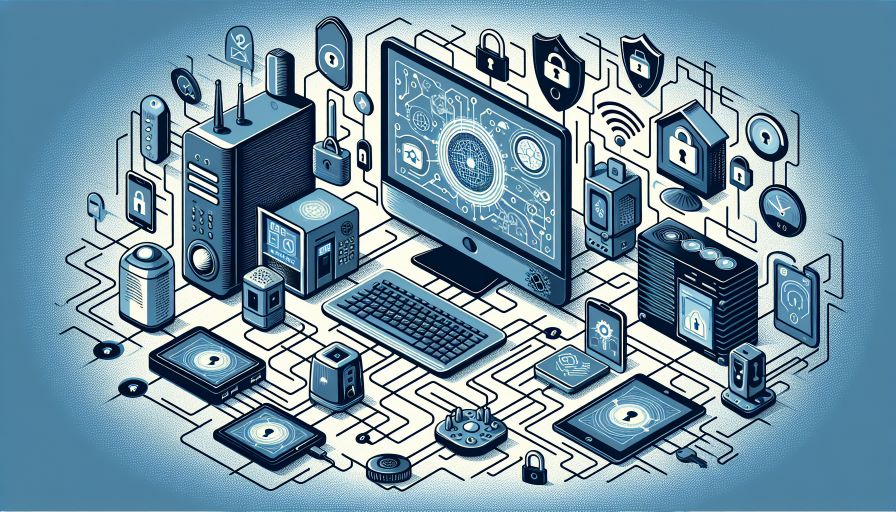In today’s digital age, consumer electronics like smartphones, tablets, and laptops are integral parts of our daily lives. However, these devices can also be gateways for cyber threats if not properly secured. Recognizing the importance of cybersecurity measures is crucial for safeguarding your personal data.
Understand the Risks
The first step in securing your consumer electronics is understanding the types of risks involved. Cybercriminals use various tactics such as phishing attacks, malware, and ransomware to exploit vulnerabilities in your devices. For instance, if you own a gaming PC, it is susceptible to malware that can steal your personal information or disrupt its performance. Being aware of these potential threats allows you to take proactive measures to protect yourself.
Another significant risk to consider is the Internet of Things (IoT) devices in your home. Smart home gadgets like thermostats, security cameras, and even refrigerators can be vulnerable to cyber attacks if not properly secured. These devices often come with default passwords that users neglect to change, making them easy targets for hackers. By recognizing the potential vulnerabilities of all your connected devices, you can take steps to secure them and prevent unauthorized access to your home network.
Use Strong Passwords and Multi-Factor Authentication
One of the simplest yet most effective ways to secure your consumer electronics is by using strong passwords. A strong password should be unique and include a mix of letters, numbers, and special characters. Additionally, enable multi-factor authentication (MFA) whenever possible to add an extra layer of security. For example, when purchasing a new device from Føniks Computer, ensure that you set up MFA to protect your account from unauthorized access.
Keep Your Software Up to Date
Regularly updating your software is another critical step in maintaining the security of your consumer electronics. Software updates often include patches for security vulnerabilities that could be exploited by cybercriminals. Set your devices to update automatically or check for updates regularly to ensure you have the latest protection against threats. Outdated software can serve as an easy entry point for hackers looking to compromise your personal data.
Be Cautious with Public Wi-Fi
Public Wi-Fi networks are notoriously insecure and can pose significant risks to your consumer electronics. Avoid accessing sensitive information such as banking details or personal emails when connected to public Wi-Fi. If you must use public Wi-Fi, consider using a Virtual Private Network (VPN) to encrypt your internet connection and protect your data from prying eyes. Being mindful of where and how you connect online can greatly reduce the risk of cyber threats.











